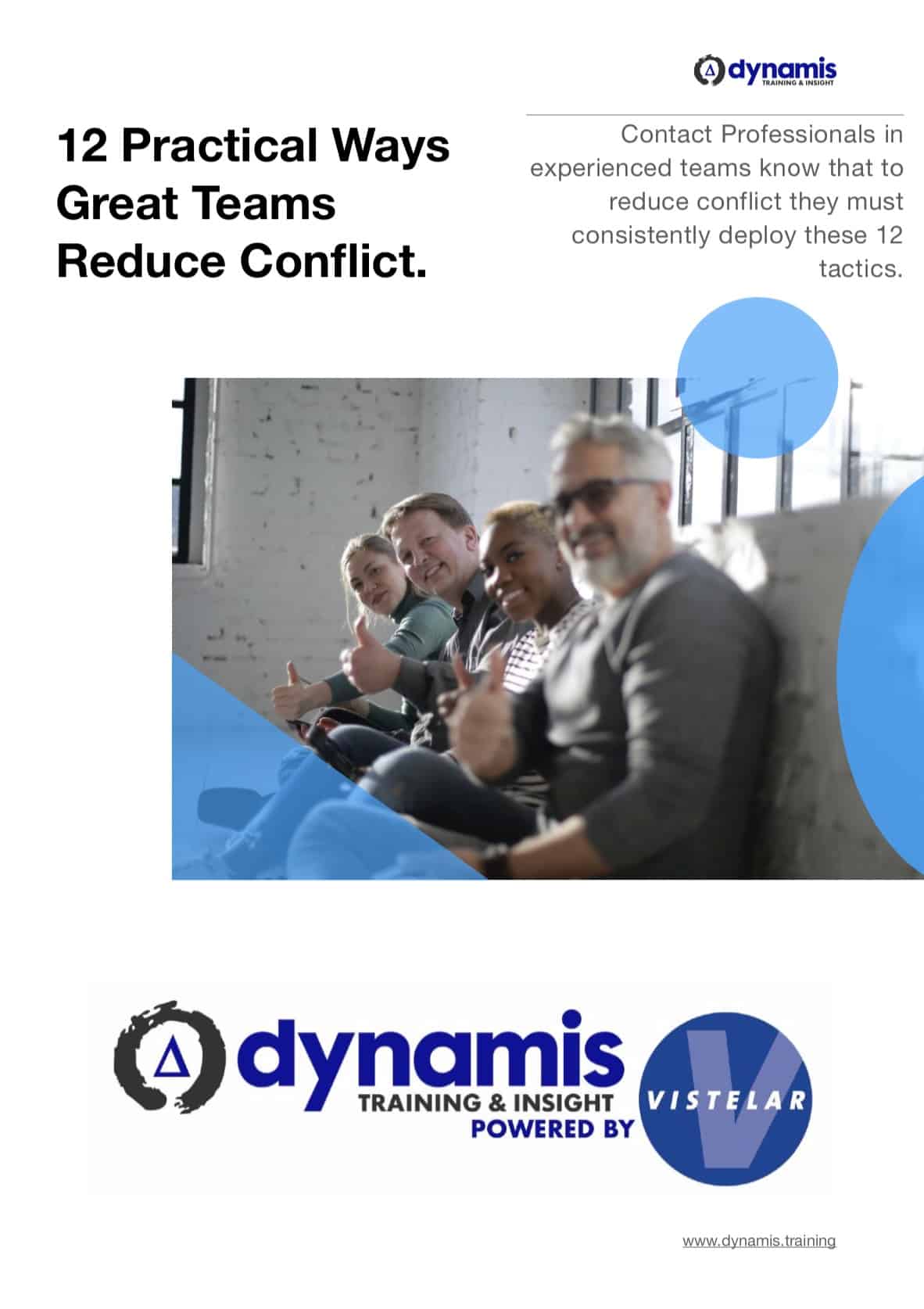Learn How Great Teams Reduce Conflict in their Services
Your team may encounter frustrated, angry and distressed people. Effective training can help your people to deal with those encounters expertly and keep everyone safe in your organisation.
Your team are doing their very best to meet the needs of those they encounter in your workplace - whether people passing through your service (such as visitors to a hospital) or whether the people ARE your workplace (your patients, customers and service users).
Our society is experiencing a time when individualism and community are sometimes in friction. People have high expectations and low thresholds for feeling vulnerable, for feeling disrespected and for not getting their own way.
The consequence is that your people are sometimes in the middle, and they need your help to be able to weather the storm:
- How to not escalate situations unnecessarily.
- How to listen and empathise to resolve problems.
- How to be persuasive to overcome refusal.
- How to deal with intimidation and abuse while staying safe.
- Establishing and Maintaining a Social Contract.
In the following post we will outline 12 key things that teams who look good and sound good do to manage conflict encounters effectively in their workplaces. These 12 key tactics prevent conflict and defuse high-stakes encounters, and help staff to keep themselves, their colleagues, their organisations and those they are dealing with safe.
We hope this short guide will help to frame your thoughts around helping your team with managing conflict effectively, and what great training in conflict management can do.
1) Give Dignity and Respect - Great teams make sure that whomever the team encounter, the person is treated with dignity by being shown respect, even when there is conflict. It is all too easy to descend into disrespect, threatening behaviour or disconnection when things get tough, so professionals make sure to take the high road. Professionals know that human dignity and a sense of respect is a powerful currency when managing conflict.
2) Respond, Don’t React - Great teams make sure that they have pre-planned and practiced responses in mind for the inevitable high-stakes encounters which arise in their work. Many conflict scenarios in the workplace emerge from recurring triggers, or common situations which arise, so the contact professional assesses these situations and makes a plan for dealing with them and - given the opportunity - will practice their responses to them until they ‘can’t get them wrong’.
3) Be Alert and Decisive - Great teams make sure that they remain alert and decisive in the presence of danger and have a high awareness of people’s conflict triggers. It can be all too easy to believe that danger never visits our workplace, or to become complacent to the risks. Professionals know that being fully ‘on point’ and making quick decisions is the key to defusing conflict early and staying safe if physical security is threatened.
4) Remember: It’s Showtime! - Great teams make sure that they are able to maintain their emotional equilibrium as they deal with difficult situations which may even be triggering their own ‘hot buttons’. More than one seasoned team member has encountered someone in their workplace who has been able to pull down the protective veneer of professionalism, threatening to trigger an emotional, ill-thought response which could be career-threatening in its effect. Real pros know the tricks they must use to stay cool and calm in the midst of crisis.
5) Control Proxemics - Great teams make sure that they respect the safety of physical distance. Getting too close, talking too much and touching too soon are the hallmarks of many poorly managed encounters. Experienced conflict professionals also use subtle hand positions and body positioning which offers them safety advantages, and these allow staff to enter into spaces and work in close proximity with others mindfully.
6) Initiate Contact Mindfully - Great teams make sure that they do not escalate conflict needlessly when they make their first impressions. It can be all-too-easy to make a poor first impression when someone is already stressed-out by some adverse occurence, and then they see a uniform, an I.D. badge or a ‘here we go’ face coming towards them In those first few moments of contact, professionals know that their words and their visual-auditory presentation can set the stage for resolution, or light the fuse for the fireworks.
7) Listen with Empathy - Great teams make sure that they mindfully activate their empathy in every scenario and truly listen to the circumstances of an issue, to offer real reassurance and get to the solution more quickly. Jaded or weather-worn approaches to conflict can emerge in some cultures where staff suffer from a type of compassion-fatigue through constant exposure to the coal-face of conflict. Great teams remind themselves that the other person is likely going through ‘this’ for the first time. They try to see the world through the other person’s eyes.
8) Persuade for Collaboration - Great teams make sure that they consistently employ effective skills of persuasion which gain the cooperation and collaboration of those more difficult persons they may encounter. Poorly managed disagreements can soon devolve into threatening language and brinksmanship, but veteran conflict professionals arrange their persuasive language in layers, moving effortlessly from one to the next as they break down resistance and refusal, moving always towards the other person’s collaboration.
9) Redirect Negative Behaviour - Great teams make sure that they redirect negative behaviour like verbal abuse, intimidation or insults and get back on track, working on the problem, rather than being taken off-task and being diverted from their professional goals during the encounter. It can be all too easy to be ensnared by a well-placed barb, but great conflict professionals try to avoid being drawn into an ego-based reaction - and keep their goal in mind.
10) Adapt Communication - Great teams make sure that they are sensitive to the needs of vulnerable people - and use appropriate communication methods for people who respond differently to circumstances, for example those who are not neurotypical, or those living with dementia or even those temporarily intoxicated. Situations like these demand a more inquisitive and insight-driven approach, perhaps with a trauma-aware eye - and a slower pace - in order to recover the person and then make them safe.
11) Recognise When Words are Failing - Great teams make sure that they take appropriate action by disengaging from situations - or escalating them when absolutely necessary - in response to an encounter which clearly poses a risk of harm. Too often we meet contact professionals who rush in! Often, too, they remain with the danger long after they should have departed. Great teams know to withdraw from conflict when all their efforts are exhausted, and they become great at identifying the timing of that moment.
12) Achieve Closure - Great teams make sure that they always leave people feeling better than when we first encountered them, or at least set a positive future expectation for when they will next encounter them. People get upset and they say things they don’t mean. People resist authority, and do the wrong thing. Professionals know that none of these things should mean that we can’t, at the end of our encounter, recognise the human dignity of the person and show them the respect of saying: “Next time, let’s not do it this way - Next time, let’s work it out together”
If you click 'Download PDF', you can receive a copy of this guide with additional details about how we can help your teams to deploy these 12 conflict management tactics and much, much more.


